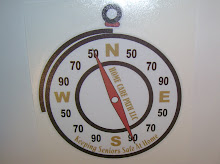Medicare Part D is a federal program that came out of the Medicare Prescription Drug Improvement and Modernization Act of 2003. Medicare Part D prescription drug coverage began January 1, 2006. Enrollment in Medicare Part D is voluntary.
J. Michael McWilliams, Alan M. Zaslavsky, and Haiden A. Huskamp conducted a study (Implementation of Medicare Part D and Nondrug Medical Spending for Elderly Adults With Limited Prior Drug Coverage) that reveals Medicare Part D has contributed to a decrease in spending for nursing home service.
Medicare Part D often called drug coverage reduces out of pocket expenses and encourages seniors to continue to take essential medications. Doctors have been better able to treat seniors on an outpatient basis for conditions that previously required an inpatient stay in order to be covered by Medicare.
Avoiding the nursing home can indicate seniors are healthier and enjoy a better quality of life. Access to needed medications can help seniors avoid a nursing home stay. The cost of having the senior receive medication in the home is far less than having a nursing facility administer the medication. This translates to saving a large sum of public money.
When assessing the value of the Medicare Part D program it will be important to factor in the reduced public money spent on hospitalization and nursing home stays. With the support of Medicare Part D seniors are able to manage serious health conditions through medication and prevent complications that could result in an extended nursing home stay.
Home Care Path http://www.homecarepath.com/ encourages seniors to follow the legislative process related to the Medicare Part D Program.
Subscribe to:
Post Comments (Atom)

No comments:
Post a Comment